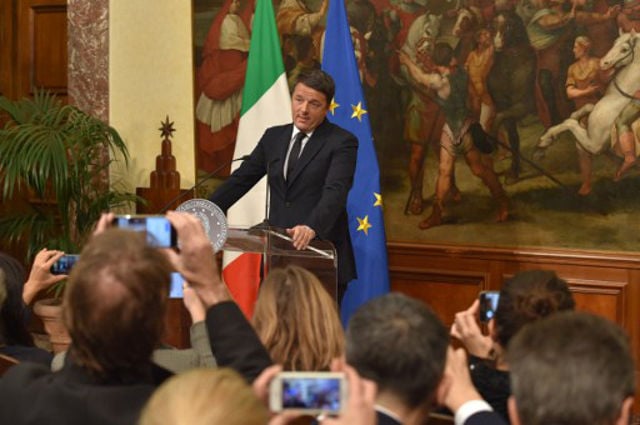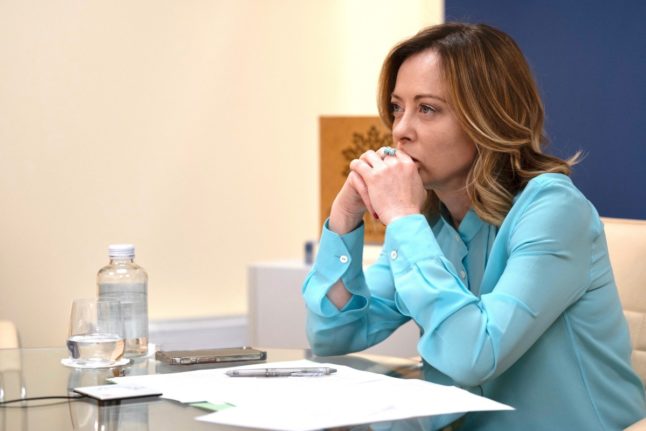While there are some obvious similarities between the victory for No in the referendum and two other political upsets of the year – Britain's vote to leave the EU and Donald Trump's election as US president – there are also several crucial differences.
“Like Brexit and Trump, the outcome of the Italian referendum has been a great surprise, but for the opposite reason,” explained James Newall, a UK-based professor and expert in Italian politics. “Polls suggested that the result would be very close and instead there has been a decisive and unequivocal result.”
Indeed, the final count showed that Italians rejected the proposed reforms by 60 to 40 percent, following a 68 percent turnout – extremely high by Italian standards. Unlike Brexit, where the small margin has led to calls for a second referendum from some quarters, the Italian vote is, as Renzi acknowledged on Sunday night, “extraordinarily clear”.
Exactly how we should best interpret the result is less clear.
The country's Eurosceptics have called it a victory for “the people” and “democracy”, but Newall warned against interpreting the result as an “anti-establishment, populist revolt”.
“The division between Yes and No cut across the usual political and social divisions,” he explained. “The No side mobilized people on the left and the right, including members of the liberal elite and those in less exalted circumstances.
“Matteo Renzi wasn’t an establishment figure and had in fact been proposing reforms to sweep away vested interests.”
Indeed, it was difficult to say exactly who represented the 'establishment' in the referendum, and Renzi attempted to portray his reforms as 'anti-establishment', given that he argued they would cut bureaucracy and parliamentarians' salaries.
Ask No voters to explain their choice, and many simply argued that the government should be focusing on more important things. One young woman in Naples was typical of many when she said that cutting the number of senators “isn't really going to change things” and argued that the government should focus on increasing job security for the young.
And while it's likely that many others voted No to express dissatisfaction with Renzi's administration, many others had sincere objections to the reforms themselves.
Several constitutional experts and politicians – including prominent figures from Renzi's own Democratic Party – thought the changes would leave too much power in the hands of the premier, removing checks and balances.
Others were unimpressed by the lack of scope in the reforms: British financial weekly The Economist backed the No campaign, arguing that a technocratic government would be best placed to come up with “real reforms”, including changes to the education and judiciary systems.
If it's uncertain exactly what the electorate were voting against – the establishment, Renzi himself, or the reforms on the table – there is even more confusion over what Italians were voting for.
British Europhobic tabloid the Daily Mail erroneously referred to the referendum on constitutional change as an “EU referendum”, saying “now for Italexit!”.
Now for Italexit! Italian Prime Minister resigns after EU referendum loss https://t.co/cmReFpgsDT pic.twitter.com/mNVozqNxeJ
— Daily Mail Online (@MailOnline) December 5, 2016
Members of British rightwing party Ukip, including its former leader Nigel Farage who campaigned for Brexit, celebrated the victory, with Farage saying Italy's vote was “more about the Euro than constitutional change”.
There's no denying that the referendum and Renzi's resignation will have consequences for the European Union, and Brussels had backed the PM's reforms, but Italy is still a long way from fresh elections, let alone questioning its membership of the EU or the euro.
It's true that one of the main beneficiaries of Renzi's defeat is likely to be Beppe Grillo and his anti-establishment Five Star Movement Party, which spearheaded the campaign for No and is openly critical of the EU.
However, while the Movement has called for a referendum on Italy's membership of the euro, Grillo stressed in a blog post after the UK's Brexit vote that his party believed in the Union and wanted to reform it from within.
Furthermore, the party would have to win a general election in order to be able to hold any referendum. Grillo has called for immediate elections following Renzi's resignation, but it's unlikely that these will be held until 2018; first, Italy needs to update is electoral law.
“There's no reason to be immediately alarmed about the future of the EU, though whether that remains the case will depend on developments over the coming days, weeks and months,” Italian politics expert James Newall said.
On the other side of the political spectrum, Italy's far right were quick to claim the result as a victory all their own – despite the fact that it was a cross-party campaign, including prominent figures from Renzi's own Democratic Party.
Matteo Salvini, the leader of Italy's far-right Northern League, sent out a series of tweets celebrating the result, including one which read: “Long live Trump, long live Putin, long live Le Pen and long live the Northern League!”
And Marine Le Pen, the leader of France's far-right National Front, congratulated “our friend” Salvini on the No victory.
Viva Trump, viva Putin, viva la Le Pen e viva la Lega! https://t.co/r8FXztp9Am
— Matteo Salvini (@matteosalvinimi) December 4, 2016
However, as Newall notes, one thing Italians certainly didn't vote for was radical change.
“The result sends a clear message of 'business as usual', because the reforms have been voted down. Paradoxically, the decisiveness of the result means we will likely see less uncertainty than might have been expected – as to what happens next, we will just have to wait and see,” he said.



 Please whitelist us to continue reading.
Please whitelist us to continue reading.
Member comments